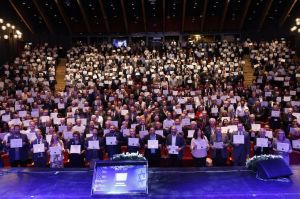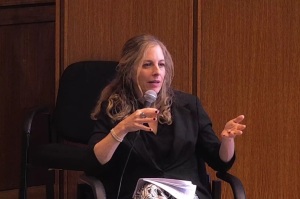#Creatorgate and the Sorry State of Science

The scientific community needs to get a grip on its bias. Thankfully, the Creator gave them wonderfully-designed hands.
In his book, "Darwin's Doubt," Dr. Stephen Meyer quotes Chinese paleontologist J. Y. Chen: "In China," Chen says, "we can criticize Darwin, but not the government; in America, you can criticize the government, but not Darwin."
A couple of Chinese researchers recently found this out the hard way when they published a paper on the workings of the human hand in the science journal PLOS ONE. Their title was innocuous enough: "Biomechanical Characteristics of Hand Coordination in Grasping Activities of Daily Living."
But a sentence in the abstract got these authors in a world of trouble: "… the biomechanical characteristic of tendinous connective architecture …" they wrote, "is the proper design by the Creator to perform a multitude of daily tasks in a comfortable way."
What? The creator mentioned in a scientific journal?
"As a scientist," protested one PLOS ONE editor, "I feel outraged by the publication of a [manuscript] making explicit reference to creationism."
This fellow and other staff members and editors — none of whom apparently saw the paper before publication — demanded its immediate retraction, and failing that, threatened to resign. The ominous hashtag "#Creatorgate" popped up on Twitter.
David Klinghoffer at Evolution News and Views remarked that a mob with pitchforks could scarcely rival the reaction this paper's authors earned for using the word "Creator."
No surprise, PLOS ONE retracted the paper and issued a supine apology. But in the midst of this Internet heresy trial, no one bothered to ask the Chinese scientists why they chose the words they did. Too bad.
As one of the authors told "Nature," "… we are not native speakers of English, and entirely lost the connotations of some words such as 'Creator.' I am sorry for that."
The panic over this translation goof says a lot about the state of science. Not only does it call into question the peer review process, but it shows how averse the gatekeepers of published research are to anything that challenges the status quo. Writing in the London Times, Melanie Phillips suggests we've entered a kind of scientific "dark age."
Much of what passes for scientific literature today, she writes, is simply untrue. Peer-reviewed journals have lately published a slew of embarrassing hoaxes and fabrications.
Why the sloppiness? The scientific rat-race is partly to blame. Mounting pressure to meet publication quotas and win grants makes researchers prone to error.
But Phillips points to something else that might explain the bizarre panic over PLOS ONE's inadvertent nod to a Creator: "Underlying much of this disarray," she writes, "is surely the pressure to conform to an idea, whether political, commercial or ideological."
From the Christian view, that idea is called "scientism," the notion that science alone offers truth about our world. And it's poisoning not only the peer review process, but the way the public views science itself.
"Scientists [today] pose as secular priests," writes Phillips. "They alone, they claim, hold the keys to the universe … The resulting absence of openness and transparency is proving the scientists' undoing."
If nothing else, "Creatorgate" reinforces her point. If scientists can look at the wonders of creation and still insist there are no explanations beyond nature, we ought to question their judgement and objectivity.
For more on "Creatorgate" and scientism, come to BreakPoint.org and click on this commentary.
Originally posted at breakpoint.org.



























